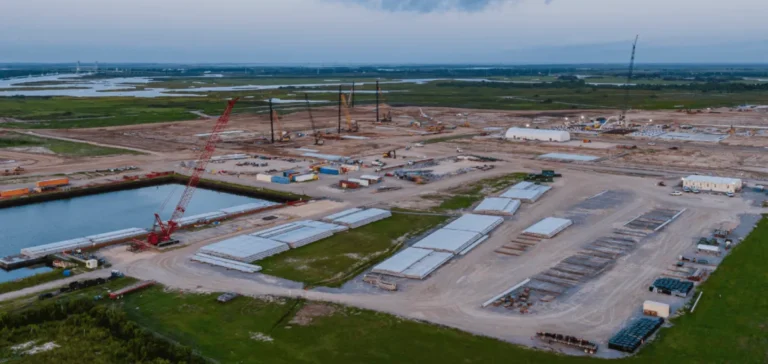Energy Transfer LP, through its subsidiary Energy Transfer LNG Export LLC, has concluded a new agreement with Chevron U.S.A. Inc., expanding their initial contract by 1 million tonnes per annum (mtpa), now totaling 3 mtpa. This 20-year agreement stipulates delivery Free on Board (FOB), with pricing composed of a fixed liquefaction fee and a component indexed to U.S. natural gas prices at Henry Hub. The additional volume will be exported from the Lake Charles LNG project located in Louisiana, currently awaiting a Final Investment Decision (FID). The effective implementation of the contract directly hinges upon this crucial step, expected by the end of 2025.
A Strategic Project for Energy Transfer
Lake Charles LNG is leveraging an existing site with established infrastructure, including four storage tanks and two dedicated berths for LNG carriers. This “brownfield” approach significantly reduces the project’s development costs. Energy Transfer aims for a total liquefaction capacity of 16.5 mtpa, distributed across three trains. At this stage, the company has already secured nearly 16 mtpa, encompassing firm commitments and preliminary agreements with several major international players.
Chevron’s agreement follows an initial deal signed in December 2024 for 2 mtpa, clearly indicating Chevron’s intent to enhance its position in global liquefied natural gas markets. This new commitment positions Chevron among Lake Charles LNG’s primary clients, alongside Japan’s Kyushu Electric Power and MidOcean Energy, a private energy investment firm.
Consolidating the Project’s Economic Viability
Kyushu Electric has signed a firm agreement for 1 mtpa over a similar period, while MidOcean Energy is negotiating for a potentially strategic volume of 5 mtpa. MidOcean’s agreement could include a direct financial participation of up to 30%, further ensuring the project’s profitability. However, the Final Investment Decision remains dependent on completing negotiations and finalizing regulatory approvals for exports to countries not covered by Free Trade Agreements (non-FTA) with the United States.
Energy Transfer is targeting a diversification of its market reach, including Asia and Europe, to stabilize revenues amid international volatility in energy prices. Increasing the export capacity of U.S. natural gas, notably toward Asian and European markets, remains a central aspect of the American company’s commercial strategy.
Crucial Regulatory Challenges
Furthermore, the necessary authorizations for exports to non-Free Trade Agreement countries (non-FTA) remain to be definitively secured, representing one of the principal regulatory challenges for the Lake Charles LNG project. The U.S. Department of Energy (DOE) must grant final approval for these permits to allow the project to reach its full operational capacity. Negotiations on these regulatory aspects remain active and will be decisive for the project’s long-term commercial viability.
This new agreement between Energy Transfer and Chevron highlights the current dynamics of the global liquefied natural gas market, driven by sustained international energy demand. The strategy adopted by these two companies might encourage other potential investors or buyers to follow suit by securing long-term supply contracts ahead of the completion of infrastructure projects.






















